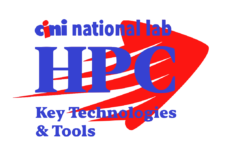The lecture shows new trends on HPC architectures, which will be based on heterogenous platforms mixing GPPs (General-Purpose-Processor) and accelerators. At the GPP side, new multi-core Arm 64b solutions with scalable vector extension recently emerged as valid alternative to classic Xeon. At the accelerator side, GPUs are the dominating solution, although FPGAs and custom accelerators are also adopted. Quantum-computing accelerators will be the new frontier. The potentiality of RISC-V ISA for HPC effort is also addressed at R&D level. The innovation in HPC architectures addresses also cooling aspects. The classic air-cooled approach is no more suitable for the high power density achieved with recent nanoscale technologies. Hence, liquid-cooled approach is becoming the mainstream solution for high-end HPC cabinets. In the cooling field the research is focused on immersive cooling and/or bi-phase cooling. The lecture will report recent results achieved in EuroHPC projects Textarossa, European-Processor-Initiative, The-European-Pilot, Eupex and DARE
Speaker

Sergio Saponara – University of Pisa & CINI lab HPC-KTT
Sergio Saponara is Full Professor and Director of DII (Dip. Ingegneria dell’Informazione) at University of Pisa. He coauthored 407 papers in Scopus with 5.5K citations (7.5K in GS) being in the top2% Standford list of topcited researchers. Saponara is PI of University of Pisa in EuroHPC projects like EPI, The EU Pilot, Aero, Textarossa, DARE, EDIH DAMAS and spoke6 co-leader in the Italian Center for Supercomputing. He is steering committee member of EPI and spoke committee member of ICSC. He has collaborated as consultant of STMicroelectronics, Huawei, Ericsson, Marelli, Magna, MBDA, Pierburg.
Event Timeslots (1)
Mon 16 – Architecture
-
S. Saponara (University of Pisa & CINI lab HPC-KTT)

